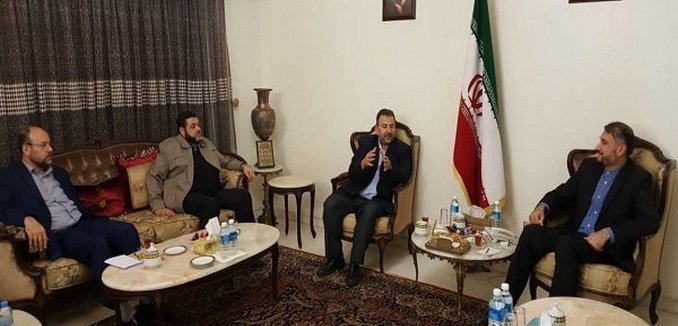The terrorist organization Hamas is establishing a foothold in Lebanon with the support of the Iranian regime and aims to intensify strategic ties with the Tehran-led Shiite axis, Shin Bet Director Nadav Argaman warned during a cabinet briefing on Sunday.
Ynet reported Monday that Hamas and Iran patched up relations half a year ago, when the terrorist organization selected a new leadership, ending years of tension over Hamas’ refusal to support Iran’s ally Syrian President Bashar al-Assad in the six-year-old civil war. Under the previous leadership of Khaled Mashal, the group worked hard to improve ties with other Sunni players, notably Egypt and Saudi Arabia.
With the change of leadership that took place in February and the rise of the militant Yahya Sinwar, Hamas’ new leader in Gaza, and pro-Iranian officials like Mohammed Deif and Saleh al-Arouri, the terrorist group began to make contact with Tehran again.
In June 2014, a Hamas cell in the West Bank kidnapped and murdered Israeli teenagers Eyal Yifrach, Gil-ad Shaar, and Naftali Fraenkel and Israeli authorities suspected al-Arouri of coordinating the abductions. Al-Arouri later took credit for the kidnapping and killing.
He eventually moved with other senior Hamas members from Qatar to Lebanon, where Iran’s Shiite proxy Hezbollah is in complete political and military control. The terrorist organization, on orders from Iran, allowed Al-Arouri to establish a foothold in the country and, about a month ago, he visited Tehran with a high-profile Hamas delegation to attend President Hassan Rouhani’s inauguration and cement the relationship.
When Israel bombed a chemical weapons factory in Syria last week to prevent Hezbollah from taking over the plant, Hamas issued a statement of condemnation, marking another indication that the group and the regime in Tehran have moved closer together.
However, Hamas also continues to court leading Sunni players in the region. A series of meetings between officials in Cairo and the terrorist organization over recent months have shown an improvement in ties, with implications for Gaza, Palestinian politics, and the wider region.
[Photo: Mehr News]




